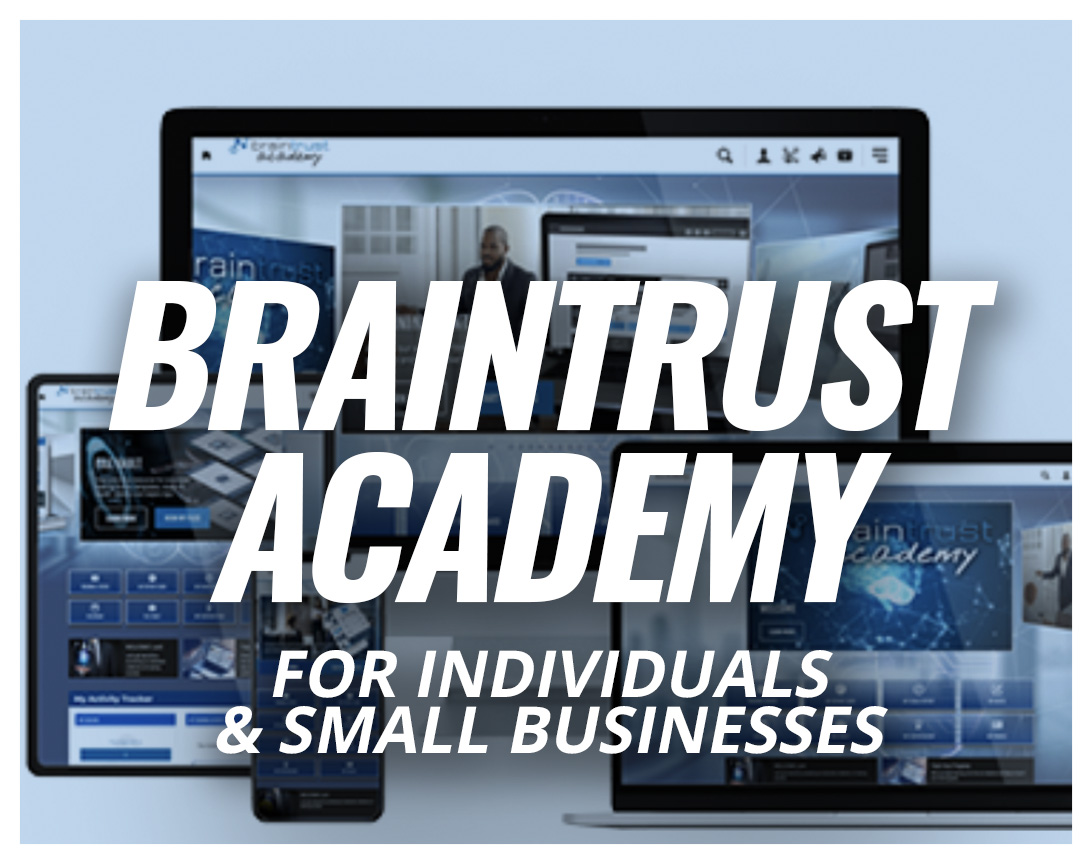The Top 3 Barriers to Small Business Growth (Number 3 Will Surprise You)
Written by Jeff Bittner
8 Min Read
When you consider the true barriers to growth for your company, what are the primary topics that typically come to mind? Is it a lack of sales or sales growth? Not enough funding? Employee retention issues? True knowledge of the customer?
The list may go on and on but having worked with small businesses for almost two decades and most recently with some of the largest companies in the world, it’s been surprising to learn from countless CEOs in numerous industries the true barriers to growth when you really break it down.
Barrier 1: Culture
What is the myth?
- Promote your best performers, sales, and service personnel, into training and management roles.
- Your managers know the difference between coaching, training, and managing.
- There is a limited pool of good candidates who will fit your company’s culture.
What are the facts?
All three of the above myths stem from a failure to foster individual growth and ensure alignment with a shared vision. Within the business world, the culture is frequently jeopardized when leadership and management lack a genuine understanding of their employees’ vision and aspirations. They assume that the employees’ vision naturally coincides with the company’s, often without learning the reasons behind why their employees choose to work for them and the company to begin with.
When a shared vision is cultivated among an employee, their manager, and the company, it triggers a profound transformation in the entire workplace dynamic. When you take this and add training on two of the most sought-after skills in corporate America today; Emotional Intelligence and Psychological Safety, you create a culture that draws and keeps the talent you’re after.
To underscore the significance of this transformation, consider a recent study conducted by the Niagara Institute. It revealed that the demand for emotional skills training is projected to increase by a substantial 26% by the year 2030. Furthermore, an overwhelming consensus prevails among HR representatives, with 95% of them, along with 99% of all employees, affirming that Emotional Intelligence is an indispensable skill that every member of the workforce must possess.
In essence, by fostering a shared vision and emphasizing these crucial skills, organizations are not only adapting to the evolving landscape of the corporate world but also equipping their employees and leaders with the tools needed to thrive in an increasingly complex and interconnected workplace.
Barrier 2: Lack of Sales
What is the myth:
- A great sales rep is difficult to find.
- Small business owners believe no one can sell as good as they can.
- Sales training is sales training. It’s all the same.
What are the facts?
At times, the CEO or owner of a company can inadvertently stifle its growth. The issue doesn’t stem from a shortage of talented salespeople; rather, it lies in the fact that leadership insists on finding individuals who can sell at the same level they do. When an owner insists on personally handling all sales, they become the limiting factor preventing the company from expanding beyond their individual capacity. Consequently, they are forced to divert their time away from other crucial aspects of the business to meet with potential clients and customers.
Only when the owner can entrust the task of driving sales to others can the company’s growth truly skyrocket. This shift in focus allows the owner to strike a better balance between their time allocation and the demands of the company. To ensure the success of the sales team in this scenario, it’s imperative for the owner to appoint a capable sales leader and establish a comprehensive onboarding training program for new hires. This strategic move not only enhances the chances of success for new team members but also ensures that the sales culture aligns seamlessly with the broader culture of the business, promoting sustainable growth.
Barrier 3: Understanding your customers as well as you understand your product
What is the myth?
- There is demand for your product
- Your sales team knows your prospect’s true goals and challenges
- Your sales teams are asking effective questions
What are the facts?
At Braintrust, our reputation is built on partnering with Fortune 500 companies and dedicating extensive hours to in-depth customer research for our clients. Our objective is crystal clear: to gain a deeper understanding of the business model of our client’s customers and uncovering how they think, act, behave, and most importantly, make decisions.
However, it’s important to acknowledge that many small to medium-sized business owners often lack access to such invaluable insights. That being said, what if there was a transformative way to communicate with prospects that flips the script for businesses of any size? Imagine empowering your sales team to understand a prospect and their business with the same depth as their own products and being able to communicate that information in a way that builds deeper trust, stronger connection, and greater influence. The potential for redefining success and achieving remarkable results becomes an exciting prospect because if your prospects believe you truly care about what they care about, the conversation completely changes.
Then there’s a prevailing misconception that having a brilliant idea automatically equates to a receptive market and a genuinely interested customer base. Regrettably, this assumption can lead to a misguided impression for demand. Be careful in assuming the market is prepared for a new product in the way you think they are. This doesn’t mean you won’t get warm leads, what it means is you need to do the most with those when they come in. This leads to the final myth, that your sales team understand how to build authentic trust with a prospect, not embarking on some rapport-building exercises that, contrary to popular belief, falls short of building a true connection.
Rapport building is the default when someone doesn’t have an arsenal of the right questions to ask. The mistake I’ve seen time and time again revolves around asking questions that should have been answered prior to the conversation, or the default of launching into self-centered questions revolving around data, facts and figures, or the features and benefits of their product or service. If the objective is to maintain the status quo and to look and sound like every other salesperson, then stick with the traditional approach that has seemingly worked for decades.
How you can fix this.
After spending more than a decade collaborating with major global brands to develop effective sales messaging, coach sales teams to be world-class communicators, and rapidly boost revenue, we’ve taken a huge step forward for small and medium-sized business owners. We’ve condensed all that extensive experience into a comprehensive package of online sales training that not only remains budget-friendly but is easily actionable.
The Braintrust Academy provides these business owners and their team of up to 10 individuals with access to online sales training that was previously exclusive to only our Fortune 500 clients. The extensive library includes dozens of hours of interactive material, accessible from anywhere in the world at your convenience. With packages for all level of engagement, regardless of which you choose, they come bundled with your own certified Braintrust Coach whose sole job is to train and activate your people. Businesses worldwide are already seizing this opportunity, and I strongly encourage you to explore it for yourself.
Visit www.braintrustacademy.com and book a demo today.




